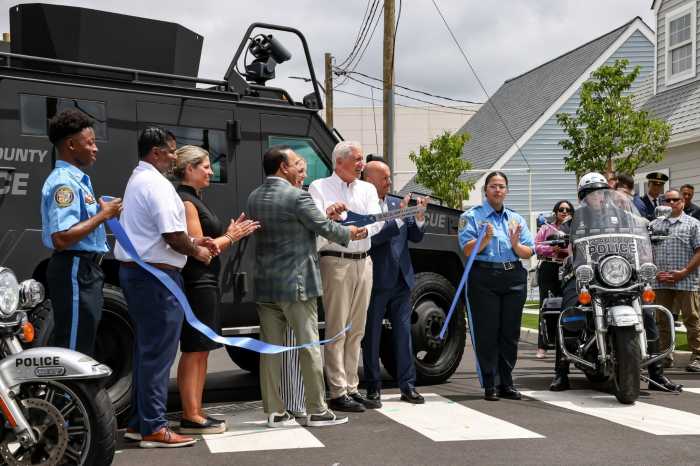Who do I consider people worth remembering during Black History Month? Booker T. Washington? Yes. W.E.B. DuBois? Of course. Frederick Douglas? Naturally. Martin Luther King? Goes without saying. There are, however, four other unsung heroes in the cause of freedom, five men who dedicated much of themselves to the abolition of slavery. For Black History Month, let’s all remember them.
Elias Hicks (1748-1830) of Jericho was from a freedom-loving Quaker tradition that understood that freedom of conscience works hand-in-hand with freedom of body. Consequently, our area became a seedbed of abolitionism wherein manumission was not only advocated, where runaway slaves were not only granted sanctuary, but also where schools and places of worship were established in locales like Jericho and Jerusalem (now the north Wantagh/south Levittown area). From the Quaker meeting house he founded in Jericho in 1788, Hicks became a nationally prominent figure in the 1810s and ’20s as he traveled the countryside preaching. He was the spirit behind New York State’s Abolition of Slavery Act of 1827.
Josiah Wedgwood (1730-95), founder of the Wedgwood China Company, was another highly influential abolitionist whose philanthropic endeavors supported the abolitionist movement in Britain that was spearheaded by groups like the Quakers, Anglicans and Presbyterians. His famous abolitionist medallion appeared in middle class and affluent homes all over the English-speaking world; appealing to the Christian conscience and decency of civilized people.
Inheriting the disdain of slavery from the Wedgwoods and Darwins long before he was taught taxidermy at Cambridge by a Guyanese ex-slave, Josiah’s grandson, Charles Darwin (1809-82) was a dedicated abolitionist who observed that evil institution firsthand as he traveled the world on the H.M.S. Beagle. Coincidentally, he was born on the very same day as President Lincoln.
Probably nobody did more to stamp out slavery than William Wilberforce (1759-1833), the leader of a group of Anglican laymen and clergy abolitionists and a member of British Parliament from Yorkshire. The guiding light behind a number of missionary organizations in India and Africa, it was as a statesman that he became the force behind the 1807 Slave Trade Act and the 1833 Slave Abolition Act that outlawed slavery in the British Empire.
Addressing an audience at Concord, Massachusetts on Aug. 1, 1844 on the topic of the British success in abolishing slavery in the Empire, Ralph Waldo Emerson noted, “Other revolutions have been the insurrection of the oppressed. This was the repentance of the tyrant.”
Why don’t we know more about these men? I think it’s because they were the kind of people who are vilified by many of today’s academicians, multiculturalists, feminists and self-described civil rights activists: white, Anglo-Saxon, Protestant, affluent, heterosexual males. In many public schools and universities, students are taught – implicitly and explicitly – that white people are intrinsically racist, that Western Civilization is inherently oppressive and that Christianity is an apology for slavery (except when it’s people like President Obama’s friend and pastor thundering “God damned America!” from the pulpit). Interesting how the most outspoken anti-racists make the best racists. These street hustlers and bigots who now dominate the civil rights establishment are a reminder of how far African-Americans – indeed, all Americans – have to go. But we can take heart in all that has been achieved by the likes of Hicks, Wedgwood, Darwin and Wilberforce.
Paul Manton


































